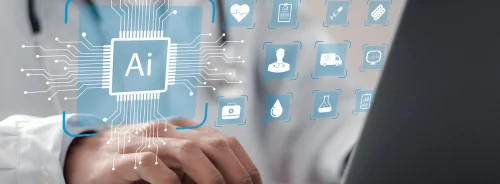HealthManagement, Volume 8 - Issue 5, 2008
The 11th edition of the annual Management in
Radiology (MIR) congress, a professional meeting aimed at leaders, managers and
administrators of radiology departments worldwide, was held in Vouliagmeni, Athens,
Greece from Wednesday 29 until Friday 31 October 2008.
This year’s edition, led by Chairman Dr. Nicola Strickland, kicked off with its traditional examination of the management challenges concerning the country in which it is held: in this case, Greece.
It addressed a variety of management problems in Greece, due to underfunding, geographical disparity and poor regulations. Some of the issues highlighted by speaker, Dr. Karantalos, for example, discussed the problems Greek radiology faces in assuring quality and implementing regulations. Disparity in holistic governance of radiology, in matters like education and quality control, are clearly not just a Greek problem and so this session se gued well into remaining ones.
Debate Reveals Concern Over Harmonisation
A following session on education and training stimulated much debate following the presentations: some commented that radiology is perceived in Europe as the “poor man” – because anyone can do it, neither the best nor brightest enter the specialty. Further comments revealed concerns that crossborder migration of workers brings risks to the patients as not all have followed the same quality standard of education.
Teleradiology also continued to come under scrutiny, following last year’s discussions in Oxford. A number of attendees commented that radiology is increasingly becoming a commodity, in that it can be available anywhere, anytime, enabled by tele radiology – not necessarily a good thing. Others argued that increasing availability of services can only be a boon since one doesn’t need to be concerned with covering the costs of full-time employees.
Congress Highlights
Other highlights included a session on management issues in ultrasound. Led by Prof. Michel Claudon, it highlighted the growth in applications for ultrasound, which is paralleled with a growing budget. This should make it more attractive for radiologists. However, it became clear during the session that ultrasound is at risk of being passed to other medical specialists. It used recent studies to highlight changing growth patterns in the use of ultrasound, showing that cardiologists are increasing ly using ultrasound while use is decreasing amongst radiologists.
Conclusions
Other sessions such as managing private imaging practices, managing CD referrals and managing data security reinforced MIR’s reputation for a high quality scientific programme. While it continues to focus its efforts on ensuring that management becomes a priority for radiologists, in order to avoid fragmentation of the profession, it is also increasing its focus on core management curricula such as management of financial and human resources. Next year’s edition will be held in Riga, Latvia, and it is to be hoped that it will continue to successfully attract leaders in medical imaging to share and solve their concerns over the direction of imaging in the years to come.
MIR Chairman,
Dr. Nicola Strickland
LEADERSHIP
Training MIR-Winter course
Last year, GE Healthcare delivered a well receivedleadership training to the MIR groupand are hence looking to build on this successat the forthcoming meeting from January 15- 17, 2009 in La Thuile/IT – again featuring lastyear’s trainers Joanne Miller and John Wadellfrom the United States of America, as well asfor the first time with Peter Kinhan from France.
Scientific Programme Details
The following are key components of the course:
1.
Interactive
Sessions Aimed at Healthcare Leaders.
The approach to training will be tokeep the sessions interactive and the contentand discussion will be aimed at leadership level.
2. Strong Focus on Personal Development.
Most training in healthcare is dedicated to clinical skills and knowledge. Many clinical managers and leaders have only limited access to personal development where leadership skills can be refined and business acumen can be improved. Thus, the agenda is designed to reverse this trend with a focus on personal development, effective team management and driving change.
Five Dysfunctions of a Team
The course will reveal why a good team is a precious thing. The book ‘Five Dysfunctions of a Team: A Leadership Fable’ will bring to light how difficult it is to get a good team together and working well. This session will focus on the five elements needed to build a truly cohesive team:
1. They trust one another;
2. Then engage in unfiltered conflict around ideas;
3. They commit to decisions and plans of actions;
4. They hold one another accountable for delivering against those plans, and
5. They focus on the achievement of collective results.
Training Approach
DISC
As a manager, imagine being able to better understand what motivates your employees and recognise how to effectively deal with them. The DISC inventory, developed by William Moulton Marston, profiles four primary behavioural styles, each with a very distinct and predictable pattern of observable behaviour. Understanding the DISC patterns has empowered millions internationally to better understand themselves and others, resulting in im proved interpersonal success through more effective communication, understanding and tolerance.
Change Acceleration Process (CAP) and Lean
CAP is GE’s proprietary Change Acceleration Process. CAP is a Model, Process and Tool/Skill- Set for increasing acceptance and commitment to changes. Successful changes consistently involved a high degree of acceptance or commitment to change. This session will introduce managers to use some CAP Tools and Pro cesses that they can use with their teams to implement chan ge projects. Lean is methodology aimed at reducing waste, eliminating bottlenecks and improving quality. Since being developed at Toyota decades ago, Lean is now a well-established approach to stream lining patient flows and improving patient experience. It has been widely embraced in the US, UK and Nordic health markets and is continuing to spread other countries. This session will introduce the key concepts of Lean to give the audience insights to breaking down and solving process related issues.
Venue
The sessions have been planned to give delegates the opportunity to spend plenty of time enjoying Austria’s beautiful skiing areas. La Thuile is situated in the Alps at the extreme north-east of the country, close to the French alpine town of La Rosière, along a road going from Pré-Saint-Didier in the north-west up to the Little St Bernard Pass in the south-east linking Italy to Bourg-Saint- Maurice and the Isère Valley in France.
Registration and Accommodation
For an all-in price of 750 euros, delegates are not only registered for the MIR Winter Course, but will also be accommodated for three nights from January 14 - 17, 2009 in the exclusive first-class hotel Planibel. Additionally, a welcome dinner, a reception as well as a farewell dinner will be organised for all participants. Built in alpine style and in keeping with the landscape, it is situated only a few steps from the bottom of the ski lifts, enabling you to get to the slopes with your skis, without any other transport.
For further information, please visit our website at www.mir-online.org





